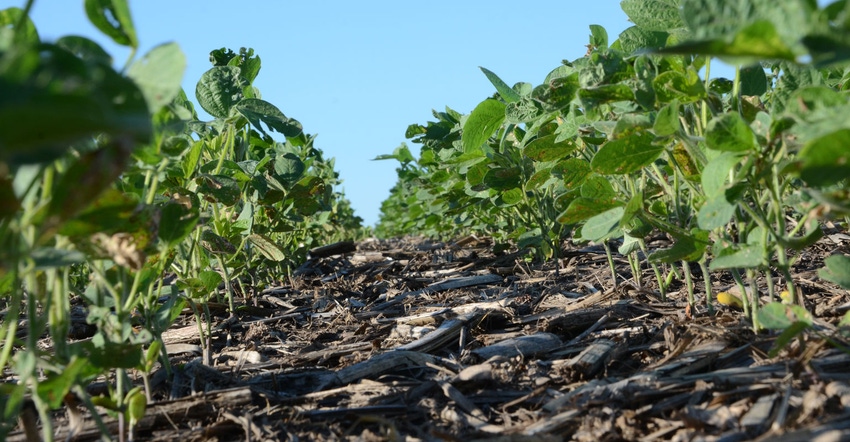March 10, 2021

Corporate collaborations are not new to agriculture, and more often you’ll see traditional crop protection companies work with biological products firms. The latest is news that FMC and Novozymes are collaborating to bring enzyme tech to crop protection. The move aims to expand the traditional category of microbial products with new enzyme solutions — and for FMC it’s a chance to boost value for existing tools.
Thomas Batchelor, vice president, agriculture marketing and strategy, Novozymes, discussed the new collaboration recently with Farm Progress. “What’s exciting about [this collaboration] is that it is really opening a new door on what has typically been focused on microbes as the delivery mechanism in the bio ag arena,” he says.
The key is using enzymes as part of the crop protection process. Enzymes are proteins, produced by a living organism, which act as catalysts to bring about specific biological reactions. Novozymes has carved a healthy niche in the market with enzymes for ethanol production and other areas. This new collaboration brings enzyme tech and traditional crop protection closer together.
Batchelor explains that FMC and Novozymes are working on two areas. One is with FMC’s diamide insecticides. Bringing enzymes into the mix could boost efficacy. The other area is for control of Asian soybean rust, which has value in many parts of the world. This could either be with stand-alone enzyme solutions, or with a combination of a fungicide with an enzyme-enhancing efficacy.
Batchelor says there has been some skepticism regarding whether an enzyme can have sufficient impact with a small amount of product. “As we have seen in other processes, it’s really impressive,” Batchelor says. “The target can be very specific. And that’s where we’ve seen very promising early-stage results. Whether the enzyme is combined with a chemistry or sometimes on its own, it can have a sufficient impact.”
While the enzyme is a biological product, this collaboration is not only about creating new standalone biologicals, but also about how enzymes can boost the efficacy of existing chemistry. In some cases, Novozymes technology can boost efficacy of existing chemistries; in some cases, it can keep efficacy the same while reducing the amount needed. And in other cases, Novozymes is developing stand-alone products that can replace chemistries or answer unmet needs in the market.
“So, you might see reduced reliance on chemistry or reduced levels,” he says. “With FMC, with diamides, we see it as a combination product with our biological and their chemistry.”
Benefits of an enzyme
Batchelor notes that the ability to maintain or reduce the use of a traditional chemical using an enzyme boost has other benefits. Some products about to come off-patent would flow into the generic market.
“You might see a higher use of that product, which usually creates resistance in nature,” he notes. “If we provide the enzyme combination, you reduce reliance on the chemistry, and you actually can navigate these kinds of resistance issues.”
The enzymes also play well with others. While they are biological, they have good shelf life and require little special handling.
Batchelor says the two companies are entering a development timeline of getting products that show sufficient rigor in field trials, and of course ensuring no safety concerns.
Novozymes and FMC would like to see a shorter regulatory timeframe given that enzymes are bio-based products, but for now the earliest would be 2026 or 2027 for products incorporating Novozymes tech.
Bénédicte Flambard, global director of FMC Plant Health, adds: “Enzymes are a relatively untapped solution in the agricultural market. This unique technology will provide a high level of performance and stability that will complement synthetic chemistry A lower cost of entry will enable use in the row crop markets, where growers desire high-performing, sustainable solutions with new modes of action.”
You can learn more about Novozymes and enzymes at biosolutions.novozymes.com/en/bioag. For more information about FMC, visit fmc.com.
About the Author(s)
You May Also Like






